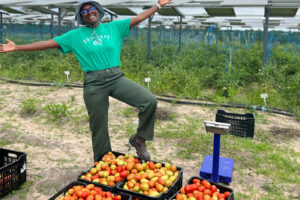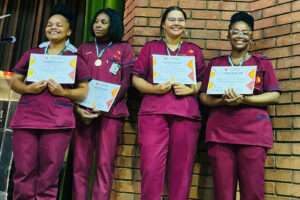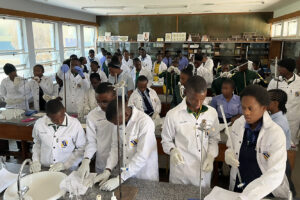David Nanhapo and Klaudia Mwatile recently became Namibia’s first participants in the prestigious Sakura Science Exchange Programme. Both are postgraduate students from the University of Namibia (UNAM), with David pursuing a PhD in chemistry and Klaudia working towards an MSc in renewable energy.
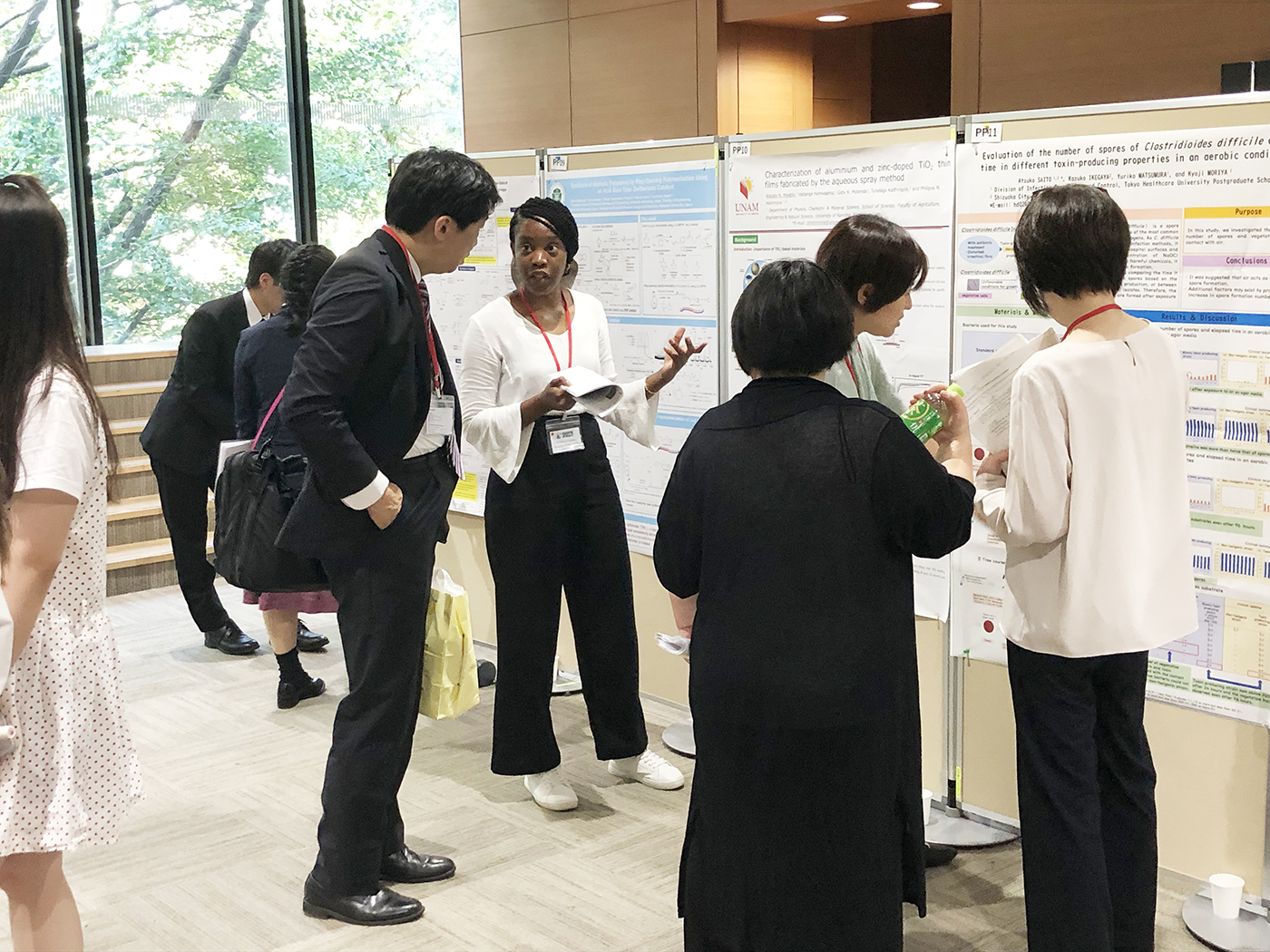
Alongside their supervisor, Dr. Philipus Hishimone, Head of the Department of Physics, Chemistry & Material Science at UNAM, the group travelled to Japan for this unique opportunity. The programme is administered by the Japan Science and Technology Agency (JST) and was hosted by Kogakuin University of Technology and Engineering (KUTE-Tokyo) in Tokyo.
The Sakura Science Exchange Programme is designed to promote international collaboration in science and technology. Through short-term exchanges, young researchers and students from around the world can experience Japanese innovation firsthand.
In addition to participating in the exchange programme, David and Klaudia attended the 29th International Symposium of the Society of Pure and Applied Coordination Chemistry (SPACC). Held at Hokkaido University in Sapporo, Japan, the event is an annual gathering for advancements in coordination chemistry.
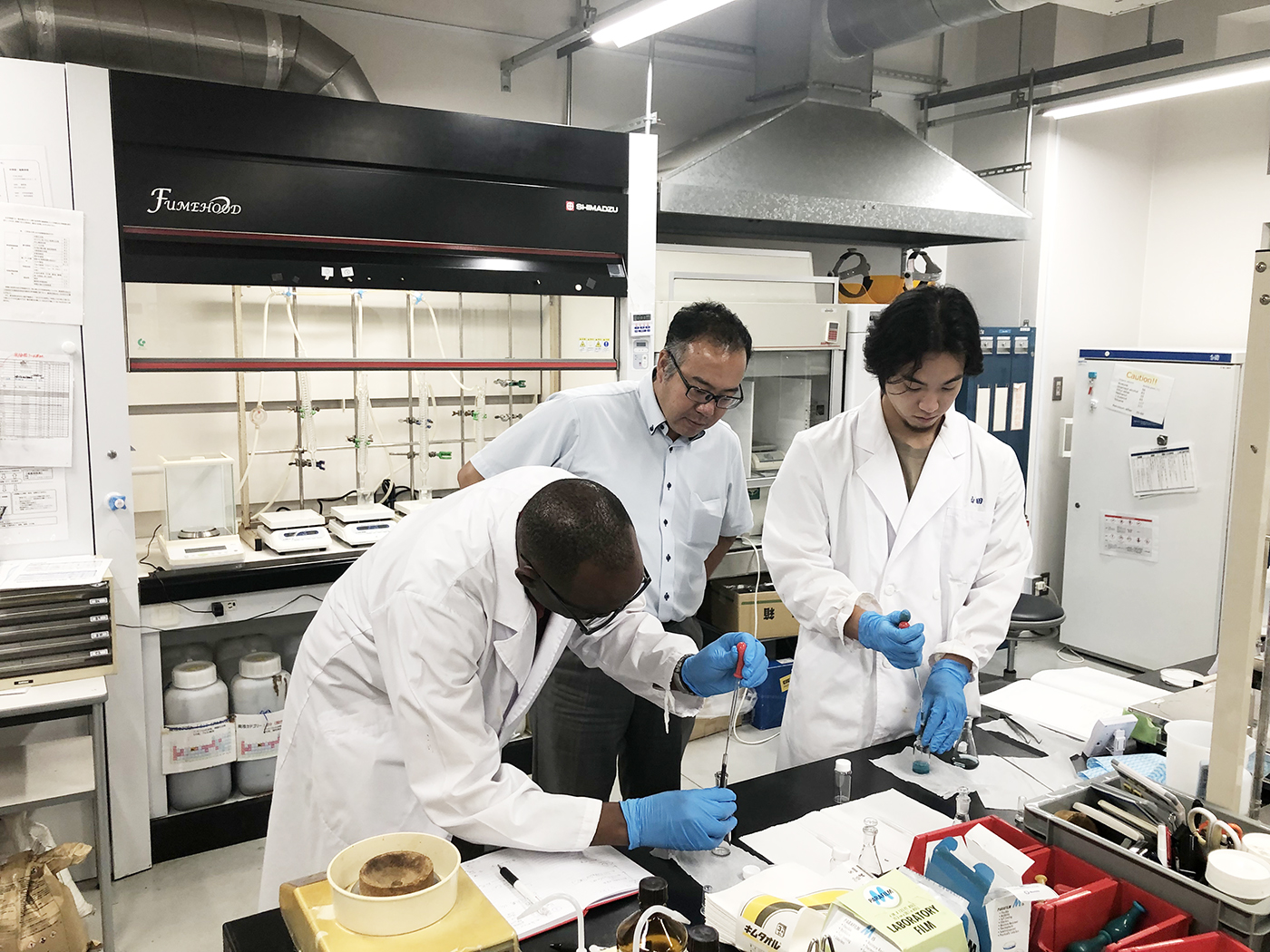
Both students had the opportunity to present their research at the SPACC symposium. Klaudia, focused on developing anti-soiling coatings for solar cells, found the feedback invaluable. “It pushed me to think more critically about my work,” she shared.
David’s research on eco-friendly copper extraction was also well received. His time spent in the lab at KUTE-Tokyo, working with advanced equipment and collaborating closely with Prof. Hiroki Nagai, was a highlight of his experience.
A 14,092 km journey of inspiration, cultural and academic discovery
For David Nanhapo and Klaudia Mwatile, their 14,092 km trip to Japan was much more than just academic. It was an opportunity to witness and embrace a new culture, gaining a broader worldview that would influence both their personal and professional lives.
Both students were struck by the blend of ancient tradition and modern technology in Japan. Klaudia noted how “you can walk past centuries-old temples, and right next to them, you’ll find high-tech skyscrapers.” This contrast left a lasting impression on her.
Food, too, was a cultural shift for David, who found Japan’s diet to be quite different from Namibia’s. “Our diet is heavily based on red meat, while in Japan, seafood and vegetables are much more common,” he observed.
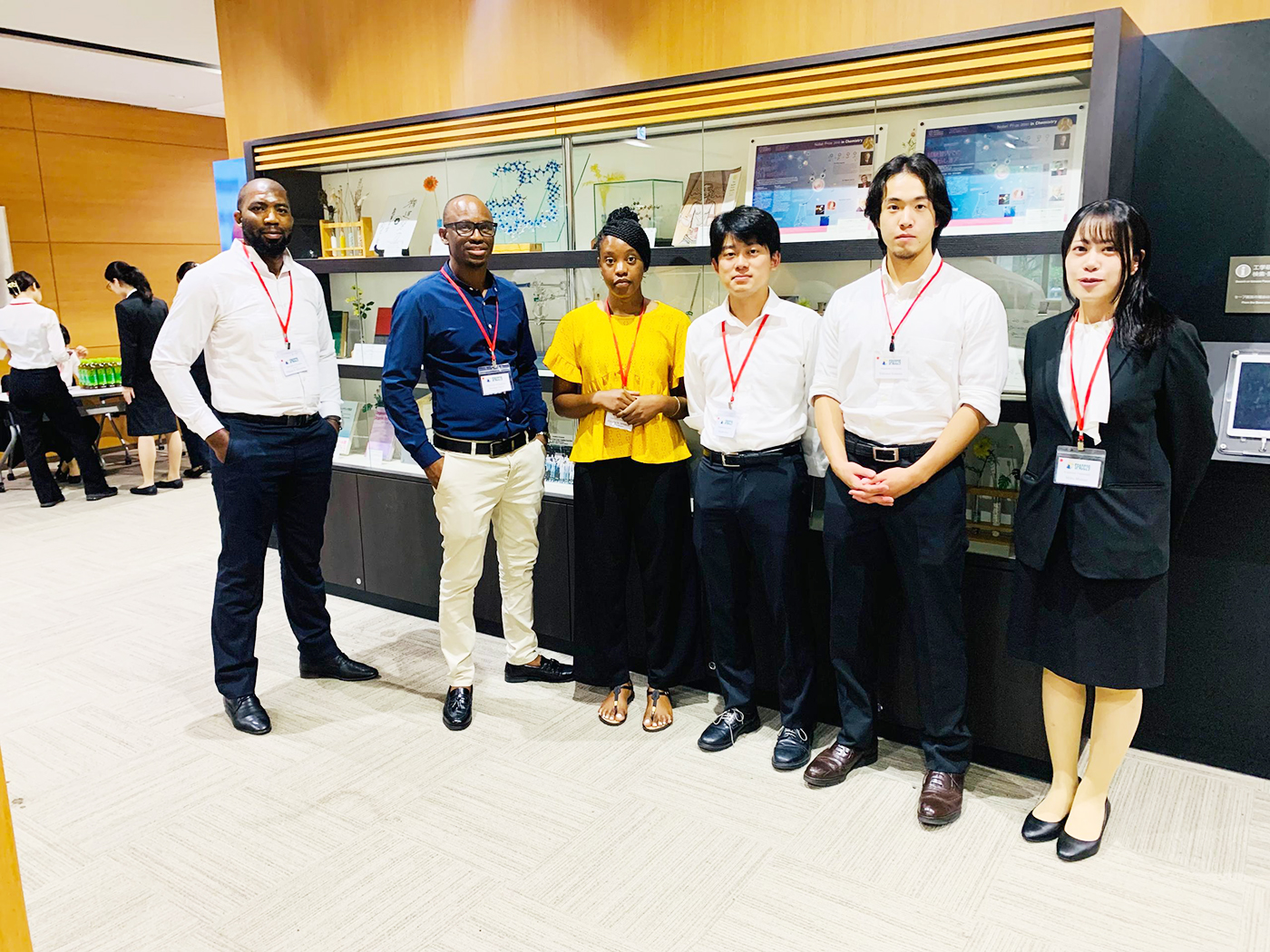
The academic culture in Japan also stood out to them. Klaudia was particularly impressed by the formality and research-driven focus at Japanese universities. Even at the undergraduate level, students were deeply involved in projects, fostering a rich academic atmosphere.
David appreciated the collaborative nature of Japanese research. “There is a strong emphasis on teamwork and collaboration,” he said, a departure from the more individualistic approach he had experienced in Namibia.
Both students found the experience inspiring. Klaudia, initially focused on completing her MSc research, is now determined to pursue a PhD. For David, presenting at the SPACC symposium opened his eyes to the broader research community and set higher standards for his own work.
Their exposure to Japanese culture extended beyond academia. David learned about the importance of punctuality in Japan, where being on time is seen as a sign of respect. Klaudia was moved by the deep sense of politeness and respect embedded in everyday interactions.
For future participants in the Sakura Science Exchange Programme, Klaudia had one piece of advice: “Be open to the challenges. You’ll face cultural differences and a new academic system, but these challenges lead to the most rewarding experiences.”
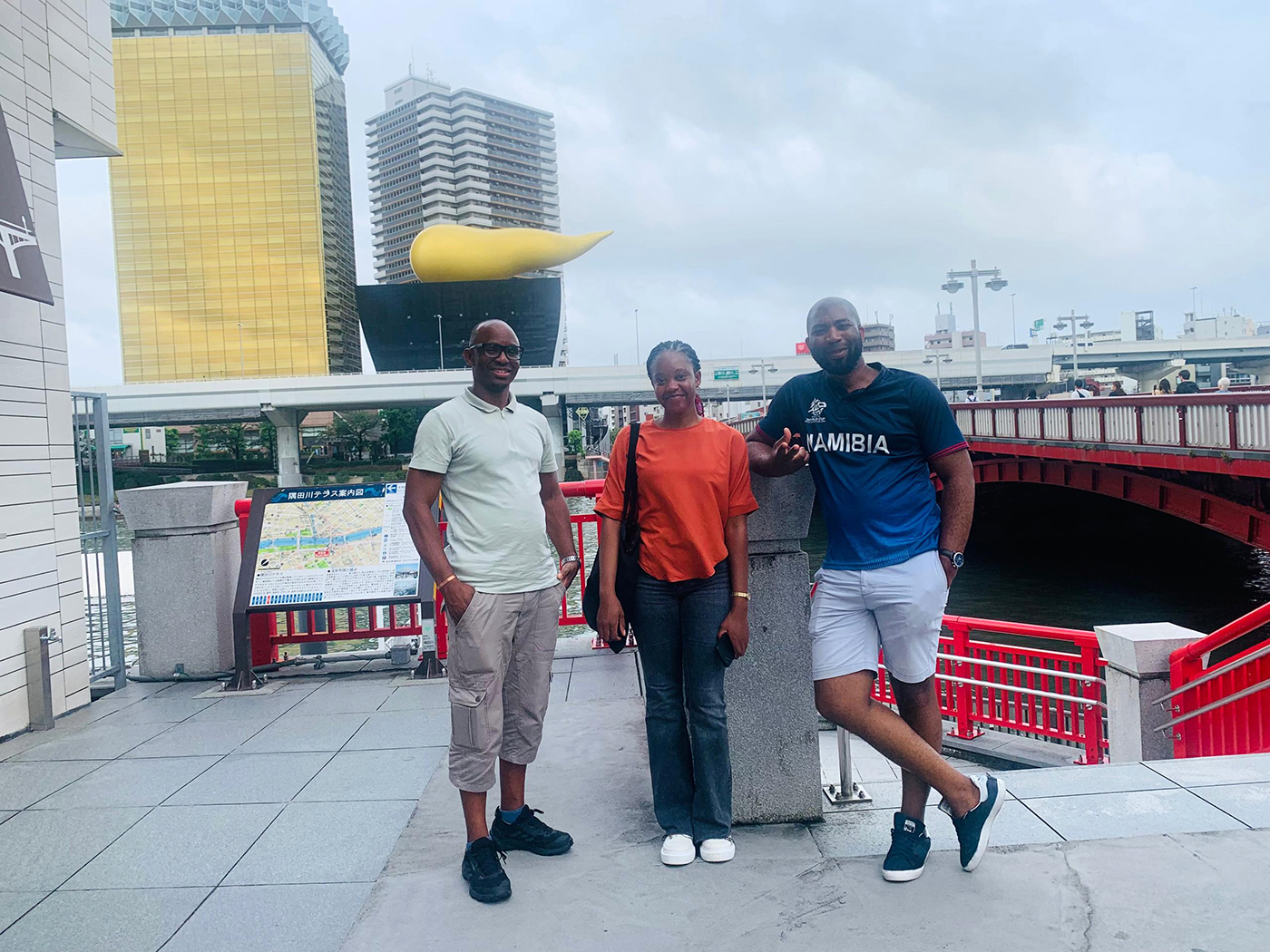
Throughout the trip, Dr. Hishimone was not only a guide but was instrumental in facilitating this transformative experience for his students. His strong connections with Kogakuin University in Tokyo, where he once studied, allowed him to secure valuable opportunities for Namibian students to join the Sakura Science Exchange Programme.
At the SPACC symposium, Dr. Hishimone presented his latest research, further highlighting his active role in international academia. His guidance not only exposed his students to advanced research but also strengthened collaboration between UNAM and Japanese universities, laying the groundwork for future partnerships.


